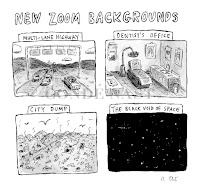I am aware that hundreds, if not thousands, of my betters - philosophers, public intellectuals and general blowhards - have said volumes on "The Idea of India". However, as an ordinary Indian, in this 75th year of our independence, I feel encouraged to add my two bit.
Imagination and ideas are central to human society. Humanity has progressed from being bands of powerless apes in the animal world to unchallenged rulers of all that survey mainly because of its unique ability to co-operate flexibly as groups of thousands, millions and even hundreds of millions.
This ability of humans to launch and sustain world-changing projects stems from a core human functionality - the ability to imagine an entity - an idea - that is little to do with physical reality and nurture and strengthen it as an integral part of the collective consciousness.
In this realm of core ideas that drive human civilization are the notions of God, Religion, Nation and Money.
At the subsequent level, every nation is bound together by an idea.
The US, for example, achieved greatness based on its self-image of rugged individualism and meritocracy framed in a federal democracy. An idea that attracted the best worldwide, priming a virtuous cycle.
However, over the last decade or two, this idea of the US has begun to fade, resulting in a decline from being the world's hyper-economic, military and cultural power.
The US needs to reinvent itself, and at the core of this reinvention will be forming a new idea that redefines its self-image.
Thus the defining idea, while being the engine that drives its society and its place in the world, cannot be static - it has to evolve with time.
Currently, politics mire the debate on the idea of India. At one end of the spectrum is the idea of India forged in the Independence struggle, Gandhian ideals and the trauma of the partition. An idea of India as a unique society that values pacifism and eschews materialism and consumerism. A simple living and high thinking paradigm contrast the West's power-seeking "greed is good" paradigm.
The idea of India as an ancient civilization is at the opposite end of the spectrum. Once a superpower that went through a passing phase of subjugation. Now beginning the reemerge as a powerful and rightful leader of the world.
To my mind, both the above ideas are anachronistic in that both are rooted in the past. Because, to young India, in a world of rapid change, even the past decade, let alone the past century or past millenniums are irrelevant.
India as a society needs to evolve and nurture an idea of itself that can power its future.
This idea needs to be rooted in its potential, not its past.
At the same time, this idea needs to be rooted in reality and not just a rhetorical shift from extolling a glorious future instead of a glorious past.
Furthermore, this idea should position India uniquely and not just as a me-too in the polity of nations.
A nation of 1.3 billion people - nearly 18% of the world population- cannot but have an idea of its future without evoking world leadership in some area of human endeavour. We cannot be a nation perennially looking to catch up with others,
India is a young country with a median age of 28.43 in 2020. However, the media age is growing at an annual rate of 2.15%; thus, by 2040, the median age will be above 40.
It is today's young who should define the new idea of India. Therefore, this new idea of India has to be aspirational - an aspiration of leading the world in a focused set of essential areas.
Given the structure of the modern world, this shortlist of essential areas must come from the domains of science & technology or public welfare (health, education and social justice).
To my mind, global leadership in a chosen set of critical science & technology fields can yield the resources that, if appropriately husbanded, can impact public welfare.
However, a Government committee or even a set of bigwigs will not choose this new idea for India.
The new idea of India will need to bubble up from the grassroots and percolate through Indian society before it takes hold. But, for that to happen, the nature of public discourse and debate must change.
Today's public discourse in India is both toxic and petty. The politicians bicker, and the media megaphones the bickering.
I believe that a handful of charismatic and articulate young Indians aided by a set of powerful mass and digital media can seed a new idea that galvanizes India. But unfortunately, these seeders cannot come from the political class though they would readily find the media platforms. That well is too poisoned. Political voices today start from a heavy trust deficit and are guaranteed vocal opposition from the get-go.
Perhaps somebody needs to "seed" the seeders, a "Star Chamber" of well-resourced well-wishers who will carefully identify them and give them the media platforms.
To sum up, a debate around the idea of India cannot assume that it is an idée fixe.
An idea of India should be the roadmap to the future and not just a relic of the past.
A bunch of public intellectuals (let alone politicians) cannot decide on the idea of India. Instead, it is a powerful, evolving emanation from the grassroots that animates the entire society.
Moreover, such an animating idea of India is not just a nice thing to have but instead a critical ingredient for a vibrant, on-the-move nation. And the only role for the elite and the powerful is to provide the ecosystem to empower such emergence and get out of the way.









